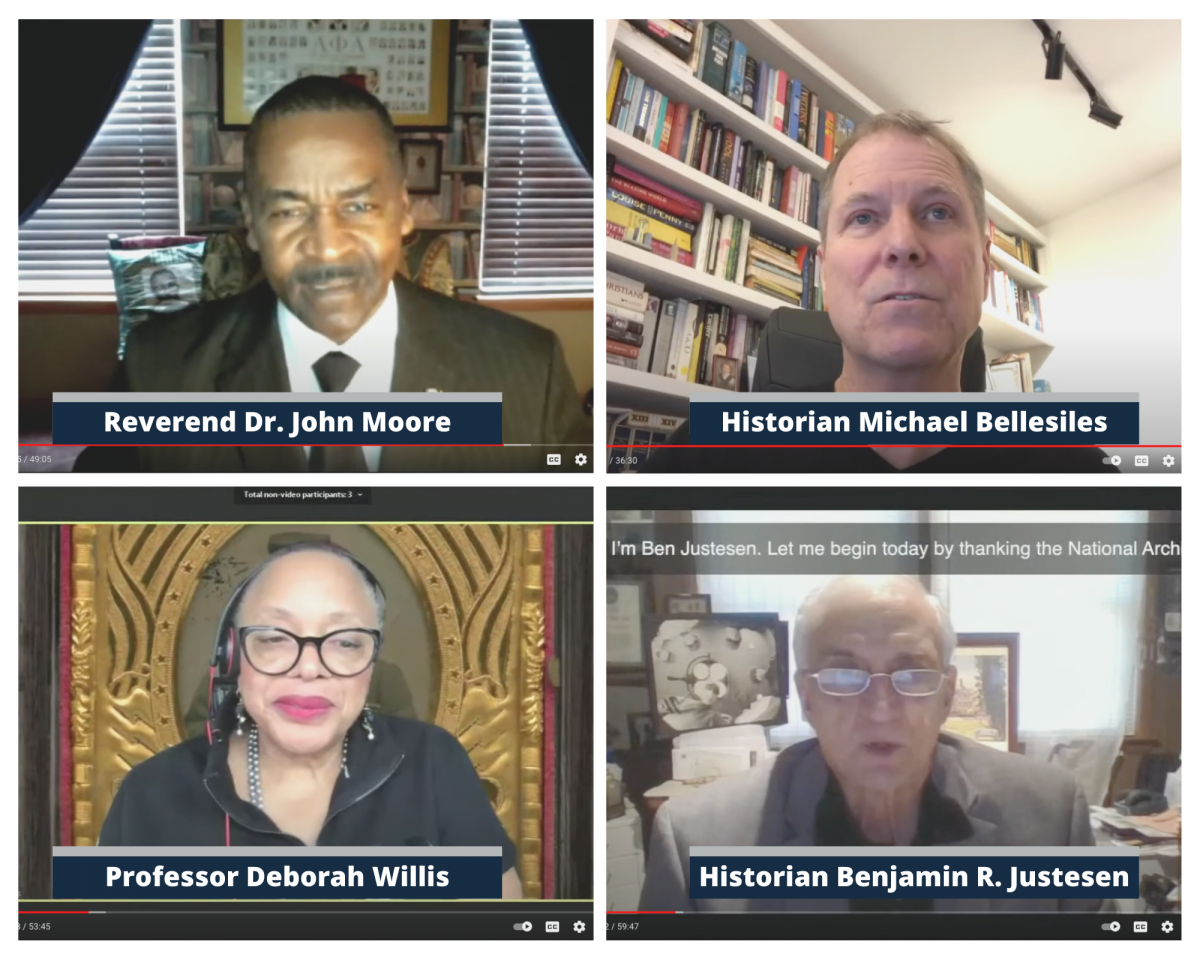
National Archives Virtual Programs Explore African American History
By Michael Davis | National Archives News
WASHINGTON, February 2, 2021—In advance of African American History month, the National Archives and the National Archives Foundation presented a number of programs in January on the continuing struggle for Black equality and civil rights from the Civil War forward. This year’s theme for African American History month in February is “The Black Family: Representation, Identity, and Diversity.”
 In video messages filmed at the National Archives Building in Washington, DC, Archivist of the United States David S. Ferriero introduced most of the virtual events.
In video messages filmed at the National Archives Building in Washington, DC, Archivist of the United States David S. Ferriero introduced most of the virtual events.
The first live virtual event on the list, which took place on January 14, was the Young Learners Program—Meet the Reverend Dr. Martin Luther King, Jr.
“What an honor it is to be here today . . . and to say hello to all of the young people that are out there who are listening,” said Reverend Dr. John Moore, an internationally recognized minister and orator, who portrayed Dr. King and brought him to life for young learners. “Today I want to share with you about my legacy, about my family, and about the different things I was able to do to make this country a better place.”
Moore’s depiction of Dr. King concluded with a question-and-answer session. The entire presentation can be viewed on our YouTube channel.
The second virtual event, which took place on January 21, was a book talk by historian Michael Bellesiles. “I'm honored by this invitation to speak at the National Archives about the core principles of human equality,” said Bellesiles.
In his book Inventing Equality: Reconstructing the Constitution in the Aftermath of the Civil War, Bellesiles looked at the role of the Supreme Court and the 13th, 14th, and 15th Amendments and explored how equality and inequality were both displayed over the decades. The recording of Bellesiles’s talk can be viewed on our YouTube channel.
The third event took place on January 27 and highlighted Professor Deborah Willis’s book The Black Civil War Soldier: A Visual History of Conflict and Citizenship.
“I’m excited to be here, and I thank the National Archives for this invitation to share my work,” said Willis. “It’s really exciting to consider a place where I did a lot of work in terms of research at the National Archives.”
In her book, Willis features several portraits of the African American experience from the beginning of the Civil War to 1900. Willis pinpoints the importance of African American communities in the development and prosecution of the war and shows how photography helped construct a national vision of blackness, war, and bondage while unearthing the hidden histories of Black Civil War soldiers.
“One of the first people who inspired me to even think about this project and to encourage the project is . . . Frederick Douglass,” she said. “Like many Americans, [Douglass] believed that photographs and pictures greatly contributed to the secession and a war over slavery.”
Watch the recording of Willis’s presentation on our YouTube channel.
In the final event on January 29, historian Benjamin R. Justesen discussed a little-known side of President William McKinley. Drawing on his new book, Forgotten Legacy: William McKinley, George Henry White, and the Struggle for Black Equality, Justesen revealed that McKinley demonstrated an ongoing dedication to the advancement of African Americans and had cooperative relationships with prominent African American leaders, including George Henry White, the nation’s only Black congressman between 1897 and 1901.
Watch Justesen’s book talk on our YouTube channel.
The National Archives will present more African American History Month programs throughout the month of February. All programs are free and open to the public and available for viewing on the National Archives YouTube channel.
You can explore more records relating to African American history online at Archives.gov. The African American History web page highlights National Archives resources and events, and the African American History research portal guides you to an assortment of records in the National Archives. The “Bending Towards Justice” section of the Records of Rights online exhibit showcases the drive for civil rights for African Americans through original documents, photographs, videos, and interactive exhibits.